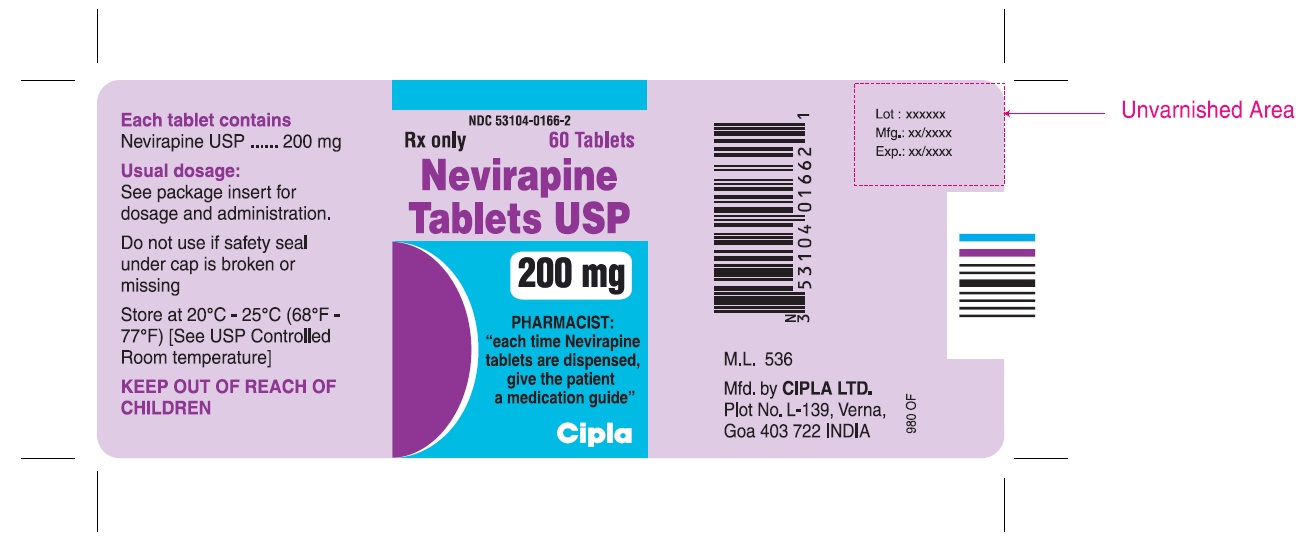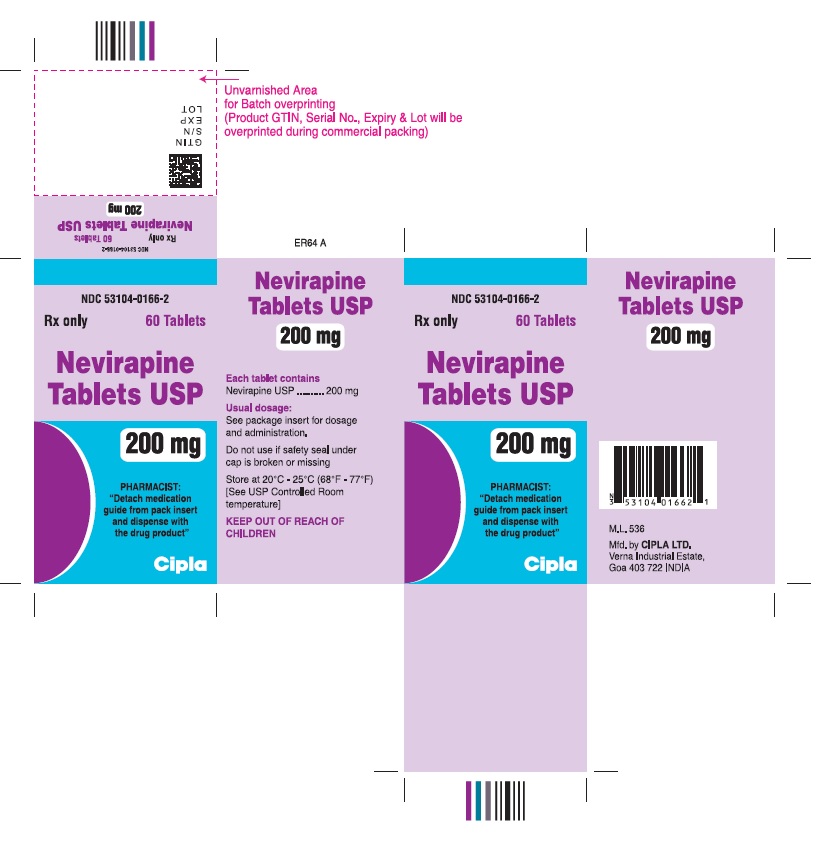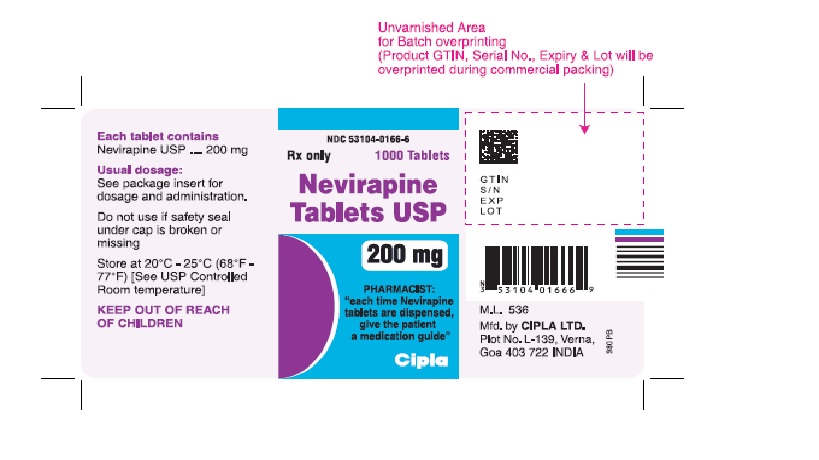
Nevirapine | Cipla Ltd. while Breastfeeding
What is Nevirapine | Cipla Ltd. used for?
Is Nevirapine | Cipla Ltd. usage safe while breastfeeding? If a lactating mother is using it can there be any effect on growth or development of infant?

8.2 Lactation Risk Summary The Centers for Disease Control and Prevention recommend that HIV-1 infected mothers in the United States not breastfeed their infants to avoid risking postnatal transmission of HIV-1 infection. Published data report that nevirapine is present in human milk [see Data]. There are limited data on the effects of nevirapine on the breastfed infant. There is no information on the effects of nevirapine on milk production. Because of the potential for (1) HIV-1 transmission (in HIV-negative infants), (2) developing viral resistance (in HIV-positive infants), and (3) serious adverse reactions in nursing infants, mothers should not breastfeed if they are receiving nevirapine. Data Based on five publications, immediate-release nevirapine was excreted in breast-milk at median concentrations ranging from 4080 to 6795 ng/mL, and the median maternal breast-milk to maternal plasma concentration ratio range was 59 to 88%. Reported infant nevirapine median plasma concentrations were low, ranging from 734 to 1140 ng/mL. The estimated nevirapine dose of 704 to 682 μg/kg/day for infants fed exclusively with breast-milk was lower than the daily recommended nevirapine dose for infants. Published literature indicates that rash and hyperbilirubinemia have been seen in infants exposed to nevirapine through breastmilk.
Nevirapine | Cipla Ltd. Breastfeeding Analsys
Nevirapine while Breastfeeding
Low RiskCAS Number: 129618-40-2
Anti-HIV drug. It has been used to treat neonates for vertical transmission risk lowering. Mothers must be adviced that transmission of HIV infection through breastfeeding has been documented.
Nevirapine | Cipla Ltd. Breastfeeding Analsys - 2
Nevirapine while Breastfeeding
CAS Number: 129618-40-2

In the United States and other developed countries, HIV-infected mothers should generally not breastfeed their infants. Nevirapine has been well studied in nursing mothers. In countries in which no acceptable, feasible, sustainable and safe replacement feeding is available, World Health Organization guidelines recommend that all women with an HIV infection who are pregnant or breastfeeding should be maintained on antiretroviral therapy for at least the duration of risk for mother-to-child transmission. Mothers should exclusively breastfeed their infants for the first 6 months of life; breastfeeding with complementary feeding should continue through 12 months of life. The first choice regimen for nursing mothers is tenofovir, efavirenz and either lamivudine or emtricitabine. If these drugs are unavailable, alternative regimens include: 1) zidovudine, lamivudine and efavirenz; 2) zidovudine, lamivudine and nevirapine; or 3) tenofovir, nevirapine and either lamivudine or emtricitabine. Exclusively breastfed infants should also receive 6 weeks of prophylaxis with nevirapine.[1][2] Because of the long half-life of nevirapine, subtherapeutic nevirapine concentrations can persist in breastmilk and infant serum for relatively long periods, potentially increasing the risk of development of nevirapine-resistant HIV infections when it is used alone for prophylaxis in the mother.[3][4][5][6][7][8]

I already used Nevirapine | Cipla Ltd. and meanwhile I breastfed my baby should I be concerned?
During whole lactation period you shall first discuss with your doctor and then together you shall decide whether you shall take that drug or not however if you have already taken Nevirapine | Cipla Ltd. then you shall inform your doctor, But you should not be worried too much as Nevirapine | Cipla Ltd. comes in category of low risk drug.
I am nursing mother and my doctor has suggested me to use Nevirapine | Cipla Ltd., is it safe?
Though Nevirapine | Cipla Ltd. dose not comes in category of safe drugs rather it comes in category of low risk but if your doctor is aware that you are breastfeeding your baby and has still recommended it then its advantages must be outweighing the risks.
If I am using Nevirapine | Cipla Ltd., will my baby need extra monitoring?
Not much
Who can I talk to if I have questions about usage of Nevirapine | Cipla Ltd. in breastfeeding?
US
National Womens Health and Breastfeeding Helpline: 800-994-9662 (TDD 888-220-5446) 9 a.m. and 6 p.m. ET, Monday through Friday
UK
National Breastfeeding Helpline: 0300-100-0212 9.30am to 9.30pm, daily
Association of Breastfeeding Mothers: 0300-330-5453
La Leche League: 0345-120-2918
The Breastfeeding Network supporter line in Bengali and Sylheti: 0300-456-2421
National Childbirth Trust (NCT): 0300-330-0700
Australia
National Breastfeeding Helpline: 1800-686-268 24 hours a day, 7 days a week
Canada
Telehealth Ontario for breastfeeding: 1-866-797-0000 24 hours a day, 7 days a week
